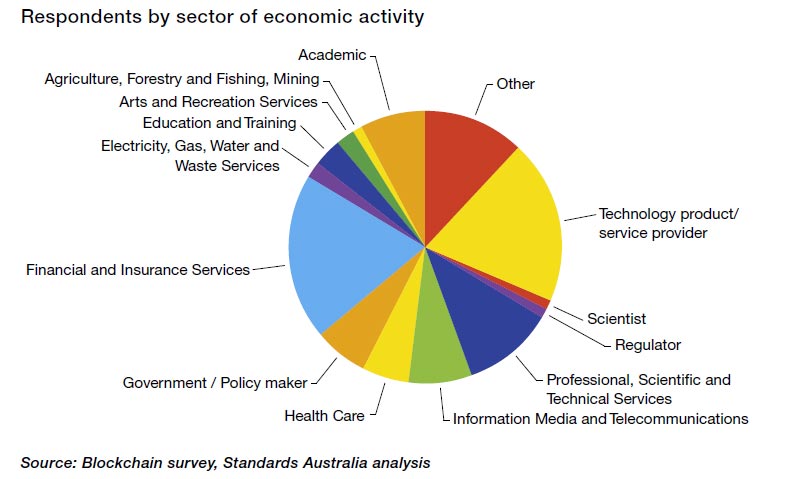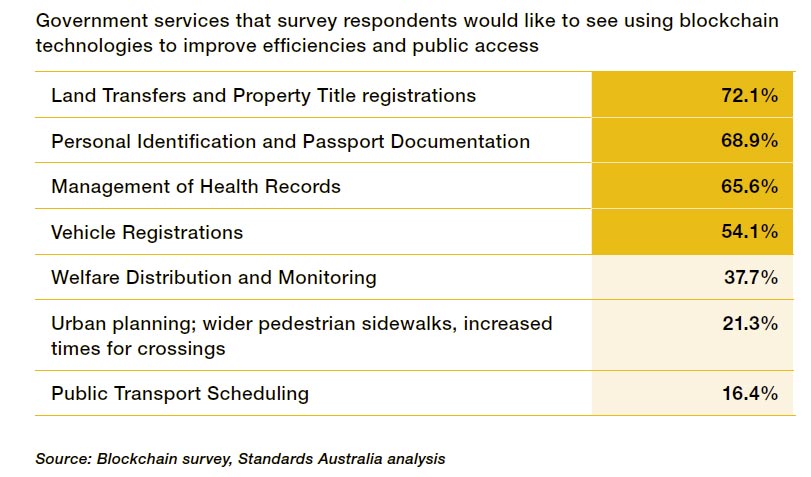Standards Australia has released its Roadmap for Blockchain Standards.
The Roadmap is designed to: identify the various technical issues associated with developing, governing and utilising blockchains and Distributed Ledger Technologies (DLT); identify blockchain and DLT use-cases relevant to Australia; and prioritise the order of standards development activities that could be undertaken in the development of blockchain standards by ISO/TC 307 Blockchain and electronic distributed ledger technologies.
 Standards Australia facilitated the development of a Roadmap for Blockchain Standards between November 2016 and February 2017. The work represents a key component of Standards Australia’s role in supporting the development of a collective Australian position on blockchain standards priorities and contributing to the establishment of industry, consumer and market confidence in the use and application of blockchain technologies.
Standards Australia facilitated the development of a Roadmap for Blockchain Standards between November 2016 and February 2017. The work represents a key component of Standards Australia’s role in supporting the development of a collective Australian position on blockchain standards priorities and contributing to the establishment of industry, consumer and market confidence in the use and application of blockchain technologies.
The report was produced as a result of a series of consultations held in 2016 and 2017 which enabled industry, consumer, academic and government stakeholders to identify and priorities the relevant international standards that may be required to support the broad use and application of blockchain and DLT.
The report explains the methodology and process used by Standards Australia to develop a Roadmap for Blockchain Standards. It highlights the critical role Australia will have in leading international efforts to develop blockchain standards under ISO/TC 307 Blockchain and electronic distributed ledger technologies.
Blockchain has the potential to support efficient and secure real time transactions across a large number of sectors. From enabling efficient and accurate financial services to providing visibility along the supply chain, and from streamlining government services to delivering confidence in identity accuracy to consumers,blockchain and DLTs have the capacity to revolutionise the way we do business.
For many Australians and global stakeholders the key to utilising blockchain technologies is contingent upon the performance of the systems. While economic efficiencies, improvements in standards of living and increased access are just some of the benefits of applying blockchain technologies, there is a broad community expectation that an appropriate legal and standards framework will be developed in order to establish market confidence.
The work included a survey of Australian government, industry, academic/research and consumer organisations. More than 100 responses to the survey were received. The finance sector was well represented.
 Within the financial services sector, there is potential for use of blockchain technologies to support:
Within the financial services sector, there is potential for use of blockchain technologies to support:
• Digital Currencies
• Trade Finance
• Remittances
• Commodity Exchange
• Other transactions
Use Cases need to be developed.
The survey also identified propriety government services which might leverage blockchain. Land Transfers and Property Titles rated the highest.

